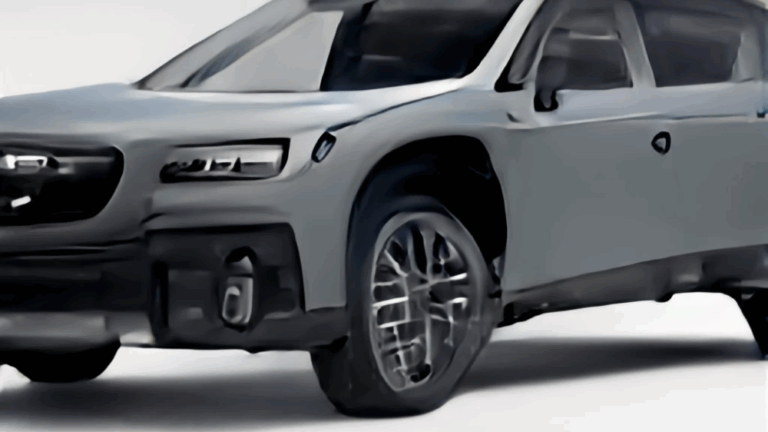Car Brands In Canada: A Comprehensive Guide to the Automotive Landscape
Car Brands In Canada: A Comprehensive Guide to the Automotive Landscape cars.truckstrend.com
Introduction: Navigating the Diverse World of Canadian Car Brands
Canada’s vast geography, diverse climate, and varied economic landscape contribute to a unique automotive market. From the rugged terrains of the North to the bustling urban centres, Canadian drivers demand vehicles that are reliable, safe, and suited to their specific needs. Understanding the array of car brands available in Canada is not just about knowing names; it’s about recognizing the engineering philosophies, design priorities, and market strategies that shape consumer choices. This comprehensive guide delves into the intricate world of car brands in Canada, exploring the dominant players, emerging trends, and practical considerations for anyone looking to navigate this dynamic market. Whether you’re a first-time buyer, a seasoned enthusiast, or simply curious, this article aims to provide a clear and insightful overview of the Canadian automotive scene.
Car Brands In Canada: A Comprehensive Guide to the Automotive Landscape
The Canadian Automotive Landscape: A Snapshot
The Canadian automotive market is a vibrant ecosystem, characterized by a blend of global manufacturers competing for consumer attention. Unlike some markets dominated by domestic brands, Canada embraces a truly international flavour, with vehicles from North America, Asia, and Europe consistently topping sales charts. Key characteristics of the Canadian market include:
- Preference for Versatility: SUVs and trucks consistently outsell sedans, reflecting a need for utility, cargo space, and capability, especially given Canada’s varied weather conditions and outdoor lifestyle.
- Emphasis on All-Wheel Drive (AWD): The prevalence of snow and ice in many regions makes AWD or 4WD a highly desirable, often essential, feature for many buyers.
- Strong Focus on Reliability and Resale Value: Canadians tend to hold onto their vehicles longer, making durability and strong resale value significant factors in purchasing decisions.
- Growing Electric Vehicle (EV) Adoption: Driven by government incentives and increasing environmental awareness, the EV market is expanding rapidly, introducing new brands and technologies.

Understanding these underlying preferences is crucial to appreciating why certain brands thrive in Canada.
Major Players: The Dominant Car Brands in Canada
The Canadian market is home to a wide array of brands, each carving out its niche. Here’s a breakdown of the most prominent categories:
1. The North American "Big Three"
These brands have a long-standing presence and deep roots in Canada, with manufacturing plants and extensive dealer networks.
- Ford: A perennial bestseller, particularly with its F-Series pickup trucks (Canada’s best-selling vehicle for decades) and popular SUVs like the Escape and Explorer. Ford also has a growing EV lineup, including the Mustang Mach-E and F-150 Lightning.
- General Motors (GM): Encompasses Chevrolet, GMC, Buick, and Cadillac. Chevrolet offers a wide range of vehicles from compact cars to full-size trucks (Silverado). GMC focuses on trucks and SUVs with a more premium feel. Buick targets luxury and comfort, while Cadillac represents GM’s top-tier luxury and performance division, increasingly with an EV focus (e.g., Lyriq).
- Stellantis (formerly FCA): Includes Ram (trucks), Dodge (performance vehicles, SUVs), Chrysler (minivans, sedans), and Jeep (SUVs known for off-road capability). Ram trucks are immensely popular, and Jeep’s rugged lineup resonates strongly with Canadians seeking adventure.
2. Japanese Powerhouses: Reliability and Innovation
Japanese brands are renowned for their reliability, fuel efficiency, and strong resale values, making them incredibly popular choices across Canada.
- Toyota: Consistently ranks high in sales and customer satisfaction. Known for the Corolla, RAV4, and Highlander, as well as its pioneering hybrid technology. Lexus is Toyota’s luxury division, offering refined performance and comfort.
- Honda: Another top contender, celebrated for the Civic (often Canada’s best-selling car), CR-V, and Pilot. Acura is Honda’s luxury arm, balancing performance with practicality.
- Nissan: Offers a diverse lineup including the Rogue, Qashqai, and Titan. Infiniti is Nissan’s luxury brand, known for its sleek designs and performance.
- Mazda: Praised for its engaging driving dynamics, stylish designs (Kodo design language), and fuel-efficient Skyactiv technology. Popular models include the Mazda3, CX-5, and CX-30.
- Subaru: Highly regarded for its standard Symmetrical All-Wheel Drive system, safety features, and reliability. The Outback, Forester, and Crosstrek are particularly popular in Canada.
- Mitsubishi: Focuses primarily on SUVs like the Outlander and Eclipse Cross, often emphasizing value and a robust warranty.
3. Korean Challengers: Value and Rapid Advancement
Hyundai and Kia have dramatically improved their quality, design, and technology, becoming formidable competitors in recent years.
- Hyundai: Offers a broad range of vehicles from the compact Elantra and Kona to the popular Tucson and Santa Fe SUVs. Hyundai has also been aggressive in the EV market with models like the IONIQ 5. Genesis is Hyundai’s luxury brand, quickly gaining traction with its sophisticated designs and strong value proposition.
- Kia: Known for its bold styling, comprehensive warranties, and impressive feature sets. Popular models include the Seltos, Sportage, and Telluride, along with innovative EVs like the EV6.
4. European Luxury and Performance: Style and Engineering Excellence
European brands appeal to buyers seeking premium materials, advanced technology, refined driving experiences, and prestige.
- Mercedes-Benz, BMW, Audi: The "German Big Three" are synonymous with luxury, performance, and cutting-edge technology. They offer a wide range of sedans, SUVs, and performance vehicles.
- Volkswagen: Known for its solid engineering, refined driving dynamics, and a strong lineup including the Jetta, Tiguan, and Atlas.
- Volvo: Prioritizes safety, Scandinavian design, and increasingly, electrification. Popular for its XC-series SUVs.
- Porsche, Land Rover, Jaguar: Niche luxury and performance brands catering to specific high-end segments.
5. Emerging Brands & Niche Players: The Future of Mobility
The automotive landscape is constantly evolving, with new players focusing on electrification and unique market segments.
- Tesla: Has revolutionized the EV market and remains a dominant force, known for its long-range electric vehicles and advanced technology.
- Polestar: Volvo’s electric performance brand, offering sleek, minimalist EVs.
- Rivian: An American EV manufacturer focusing on electric trucks and SUVs, gaining attention for its innovative designs and capabilities.
Factors Influencing Car Brand Popularity in Canada
When choosing a car brand, Canadians weigh several critical factors:
- Climate Suitability: Given Canada’s harsh winters, features like AWD/4WD, heated seats/steering wheels, and remote start are highly valued. Brands that offer these as standard or readily available options often gain an edge.
- Fuel Efficiency: With fluctuating gas prices, fuel economy remains a significant concern for many buyers. Hybrid and EV options are becoming increasingly attractive.
- Reliability and Durability: Longevity and low maintenance costs are crucial, especially for those in remote areas or who drive long distances. Brands with a reputation for dependability, like Toyota and Honda, often benefit.
- Safety Features: Advanced Driver-Assistance Systems (ADAS) like automatic emergency braking, lane-keeping assist, and blind-spot monitoring are increasingly expected and often influence purchasing decisions.
- Technology and Connectivity: Infotainment systems, smartphone integration (Apple CarPlay/Android Auto), and connectivity features are highly sought after by modern buyers.
- Price and Affordability: The initial purchase price, financing options, insurance costs, and resale value all play a role in the total cost of ownership.
- Brand Reputation and Legacy: A brand’s history, image, and perceived value can significantly impact consumer trust and loyalty.
- Government Incentives: Federal and provincial rebates for electric vehicles heavily influence the adoption of specific EV brands and models.
Navigating the Purchase: Tips for Canadian Car Buyers
Choosing the right car brand and model can be daunting. Here’s practical advice to help you make an informed decision:
- Assess Your Needs: Before looking at brands, define your lifestyle. Do you commute long distances? Need space for a growing family? Haul equipment? Live in a city or rural area? Your daily needs will dictate the vehicle type (sedan, SUV, truck, minivan, EV).
- Set a Realistic Budget: Consider not just the purchase price, but also insurance, fuel, maintenance, and potential depreciation. Factor in financing or leasing costs.
- Research Thoroughly: Use reputable automotive review sites (e.g., Edmunds, Consumer Reports, JD Power, Canadian Black Book), watch video reviews, and read owner forums. Pay attention to reliability ratings specific to Canada.
- Prioritize Safety: Look for vehicles with strong crash test ratings (e.g., IIHS Top Safety Pick) and a comprehensive suite of active safety features.
- Consider All-Wheel Drive (AWD): If you live in an area with significant snow or often drive on unpaved roads, AWD can be a worthwhile investment for enhanced traction and confidence.
- Test Drive Extensively: Don’t just take a quick spin around the block. Drive on highways, city streets, and typical routes you’d use. Pay attention to comfort, visibility, handling, and how the vehicle feels to you.
- Evaluate the Dealer Network & Service: A strong local dealer network means easier access to parts, service, and warranty work. Read reviews of local dealerships.
- New vs. Used: While new cars offer the latest features and warranties, used cars can offer significant savings. Consider certified pre-owned (CPO) programs for added peace of mind.
- Explore Financing and Leasing: Understand the pros and cons of each. Leasing offers lower monthly payments and a new car every few years, while financing leads to ownership.
- Think Long-Term: How long do you plan to keep the car? What will its resale value be like? Will it meet your future needs?
Challenges and Opportunities in the Canadian Auto Market
The Canadian automotive industry is not without its challenges and opportunities:
- Supply Chain Disruptions: Global chip shortages and other supply chain issues have impacted vehicle availability and increased prices. Buyers may need to be patient or consider pre-ordering.
- The Shift to Electric Vehicles (EVs): While an opportunity for environmental benefits and innovation, it presents challenges in terms of charging infrastructure, initial cost, and range anxiety for some consumers.
- Rising Costs: Inflation, higher interest rates, and increasing insurance premiums are making vehicle ownership more expensive, potentially shifting demand towards more affordable or used options.
- Intense Competition: The sheer number of brands and models means manufacturers must constantly innovate and differentiate themselves to capture market share.
- Technological Advancements: The rapid pace of development in autonomous driving, connected car technology, and alternative powertrains offers exciting opportunities for safer, more efficient, and more convenient transportation.
Representative Car Brand Categories & Typical Price Ranges in Canada
It is impossible to provide an exact "price table" for all car brands and their models in Canada due to the vast number of trims, options, and constant fluctuations in market pricing, incentives, and exchange rates. However, below is a representative table categorizing car brands by their typical market positioning and estimated starting price ranges for their new vehicles in Canada (as of late 2023/early 2024). These are highly generalized estimates for entry-level models and can vary significantly. Always consult official manufacturer websites and local dealerships for current, precise pricing.
| Brand Category | Representative Brands | Typical Starting Price Range (CAD, New) | Key Characteristics & Market Focus |
|---|---|---|---|
| Value & Entry-Level | Mitsubishi, Kia (entry models), Hyundai (entry models), Chevrolet (entry models) | $20,000 – $35,000 | Affordability, strong warranties, basic features, good fuel economy for compacts. |
| Mainstream & Popular | Toyota, Honda, Mazda, Subaru, Nissan, Ford, Chevrolet, Hyundai, Kia, Volkswagen | $25,000 – $55,000 | Reliability, versatility, broad model range (sedans, SUVs, trucks), good balance of features/value. |
| Premium & Near-Luxury | Buick, Chrysler, Volkswagen (higher trims), Genesis, Acura, Infiniti | $40,000 – $70,000 | Elevated comfort, advanced tech, refined driving, stepping stone to full luxury. |
| Luxury & Performance | Mercedes-Benz, BMW, Audi, Lexus, Cadillac, Volvo, Land Rover, Porsche (entry) | $55,000 – $150,000+ | High-end materials, cutting-edge technology, powerful engines, prestigious branding, superior comfort. |
| Trucks & Heavy Duty | Ford (F-Series), Ram, Chevrolet (Silverado), GMC (Sierra), Toyota (Tundra), Nissan | $40,000 – $90,000+ | Utility, towing capacity, off-road capability, workhorse vehicles, often higher trims. |
| Electric Vehicle (EV) | Tesla, Polestar, Hyundai (IONIQ), Kia (EV6), Ford (Mach-E, F-150 Lightning) | $45,000 – $120,000+ | Zero emissions, advanced tech, lower running costs (fuel), government incentives often applicable. |
| Niche & Ultra-Luxury | Porsche (high-end), Jaguar, Bentley, Rolls-Royce, Ferrari, Lamborghini | $100,000 – $1,000,000+ | Exclusive design, extreme performance, bespoke options, ultimate luxury, limited production. |
Note: These ranges are for starting MSRPs and can increase significantly with trim levels, optional features, and packages. Truck and luxury EV pricing can easily exceed the upper end of these ranges.
Frequently Asked Questions (FAQ) about Car Brands in Canada
Q1: What are the most popular car brands in Canada?
A1: Historically, Ford (especially with its F-Series trucks), Toyota, Honda, Chevrolet, and Hyundai consistently rank among the top-selling brands due to their diverse lineups and strong market presence.
Q2: Are there any Canadian car brands?
A2: While there are no major mass-market Canadian-owned car manufacturers, Canada plays a significant role in automotive production with plants from Ford, GM, Stellantis, Honda, and Toyota. These plants build vehicles for the North American market, including Canada. Small-scale or niche Canadian manufacturers do exist, but not on the scale of global brands.
Q3: Which car brands are best for Canadian winters?
A3: Brands like Subaru (standard AWD), Jeep (4×4 capability), and many Ford, GM, and Toyota SUVs and trucks with available AWD/4WD are excellent choices. Vehicles with good ground clearance, robust traction control systems, and the ability to fit winter tires are generally preferred.
Q4: Are electric vehicles (EVs) popular in Canada?
A4: Yes, EV adoption is rapidly growing in Canada, driven by government incentives (federal and provincial), increasing charging infrastructure, and a wider selection of EV models from brands like Tesla, Hyundai, Kia, Ford, and Polestar.
Q5: How does the Canadian car market differ from the US market?
A5: While similar, the Canadian market often sees slightly different trim levels, packaging, and pricing due to exchange rates, specific regulations, and consumer preferences. For example, AWD is more commonly offered or standard on certain models in Canada compared to some parts of the US. Also, some models available in the US might not be sold in Canada, and vice versa.
Q6: What should I look for in a brand’s dealership network in Canada?
A6: A strong dealership network indicates good access to service, parts, and warranty support, which is especially important in a vast country like Canada. Look for brands with multiple dealerships in your region and positive customer service reviews.
Conclusion: Driving Forward in Canada’s Automotive Scene
The landscape of car brands in Canada is a dynamic reflection of global automotive trends, tempered by the unique demands of the Canadian environment and consumer preferences. From the enduring popularity of robust North American trucks and versatile Japanese SUVs to the rising prominence of Korean value and European luxury, Canadian drivers have an unparalleled array of choices.
Understanding the strengths and specializations of each brand, coupled with a keen awareness of personal needs and market influences, empowers consumers to make informed decisions. As the industry continues its rapid evolution towards electrification and advanced technology, car brands in Canada will undoubtedly continue to adapt, offering exciting new possibilities for how Canadians move. Ultimately, choosing the right car brand in Canada is about finding a reliable partner for your journey, one that embodies safety, performance, and value in the diverse Canadian context.




